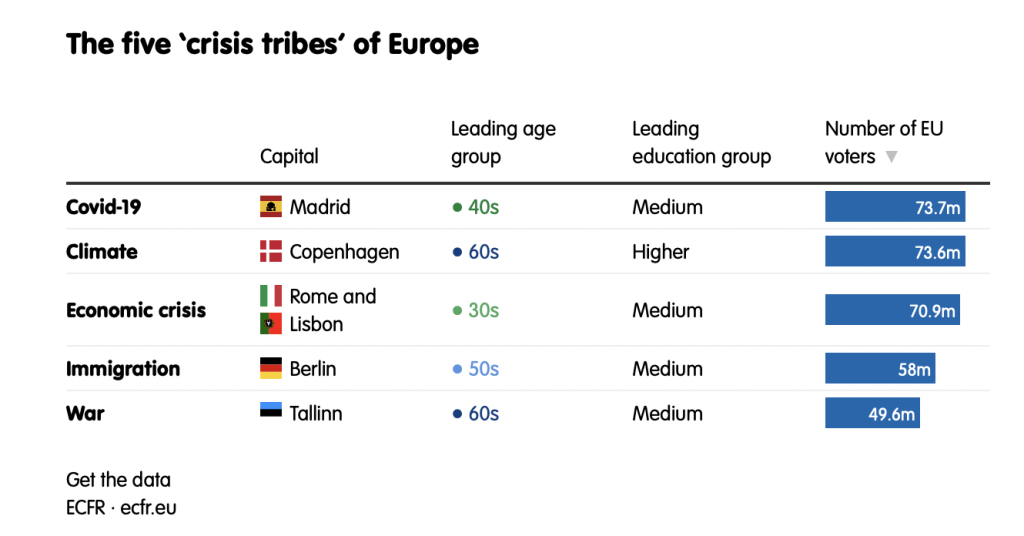Whatever one thinks of Hungarian Prime Minister Viktor Orbán’s politics it’s tough not to acknowledge his talent for getting under the skin of the Davos crowd that runs the EU. He certainly wasted no time in putting Hungary’s six-month turn as rotating president of the Council of the EU to good use. Orbán has assigned himself a peace mission that has already taken him to Kiev, Moscow, and Beijing. He’s now in Washington, D.C. for the NATO summit.
Orbán might have his own reasons for pursuing a role in an eventual peace in Ukraine, but he says that he’s simply trying to find the quickest way to stop the conflict. He also argues he’s about the only leader in the West who can talk to both Moscow and Kiev due to other leaders burning so many bridges with Russia or simply refusing to talk. He’s probably right. Not only do the diplomats in Brussels not want to conduct a dialogue, but they are, according to Politico, “plotting ways to ground [Orbán’s] shuttle diplomacy initiative.”
Nevertheless, after his meetings, Orbán said he reports back to the EU27 leaders to “inform them and make some suggestions as to how we can proceed.” One can only imagine the level of outrage that provokes in the halls of government across the continent. As Politico describes:
EU diplomats aren’t buying it. There is growing annoyance over what they see as Orbán using his turn in the rotating Council chair to promote Hungary’s worldview. It’s one that’s been so often at odds with the EU majority, especially on aid to Ukraine and sanctions against Russia. They’re planning to force the issue at Wednesday’s ambassador’s meeting.
EU diplomats against diplomacy are pressuring Orbán to shut down his efforts, and bloc countries are throwing tantrums, opting to send low-ranking officials to Hungary’s first Council meeting on Tuesday. That might be a sign of what’s to come as there is talk of boycotting the upcoming Council meetings in Budapest, but EU diplomats are also already throwing around the threat of stripping Hungary of the rotating presidency, advocated for and the process of which is laid out here:
Following the first week of #HU24EU which 🇭🇺 PM #Orbán actively exploited to ridicule & troll the EU & spread instability, I would like to remind that it would be still possible to deprive him the #CouncilPresidency & move on with an extended #Polish one.
THREAD on why & how 1.— Daniel Hegedus (@DanielHegedus82) July 8, 2024
EU diplomats deride Orban for conducting diplomacy, but polls show that Europeans are increasingly in favor of a negotiated end to the war. The question is why won’t other European officials acknowledge that fact.
Again, diplomats want to punish Hungary for conducting diplomacy – for the crime of conducting dialogue with one side of a war taking place in Europe. This is more of the same from the European elite who shut down and punish those who would even consider the Russian point of view.
Whether Orbán’s efforts ultimately help lead to a negotiated end to the conflict remains to be seen. He’s been roundly criticized by both Kiev and Brussels, but I wanted to focus here on the statements from other EU leaders that Orbán does not “represent the EU.”
For example: “The speed with which he’s been doing this trolling has been quite baffling,” one diplomat told Politico. “To use an expression from Lenin: Orbán is acting as a ‘useful idiot’ for attempts to undermine the unity of the EU.”
European Council President Charles Michel, European Commission President Ursula von der Leyen, and the current and future high representatives, Josep Borrell and Kaja Kallas, criticized Orbán’s trips and emphasized that he does not have an EU mandate and that the presidency does not represent the EU.
It might be currently set up so that positions of power in Europe are almost exclusively filled with Atlanticist hacks who will do whatever the Americans tell them to do, but that does not mean Orbán’s peace efforts are only the product of one “useful idiot.”
He might not represent the EU in an official capacity in talks or have a mandate, but his peace efforts are representative of the positions of the EU people, which are increasingly opposed to the war. If there’s a problem with representation, it’s that there is but one Orbán willing to engage in talks while the halls of governments across the continent are chock full of slavish Atlanticists who only want war.
Maybe that’s precisely what bothers von der Leyen, Kallas, Michel, and others so much about Orbán’s efforts. They want to maintain the illusion that the EU is solidly behind the war effort – both in Ukraine and economically – against Russia until the end of time. Yet, their own polling shows that at best, Europeans are torn over the issue of Ukraine.
In many cases, clear majorities oppose the bloc’s role in prolonging the conflict. And overall, support has been falling ever since the euphoria wore off in 2022.
Apologies in advance for the abundance of polling, but there are an abundance that could be read in support of Orban’s position. These are also sources friendly to the war effort, so if anything, they might even oversell support. Additionally, these numbers emerge from an incredibly one-sided information environment where mainstream media and political figures regularly compare Putin to Hitler and anyone advocating for dialogue is demonized.
Here are results from the Spring 2024 Eurobarometer survey requested and coordinated by von der Leyen’s European Commission.
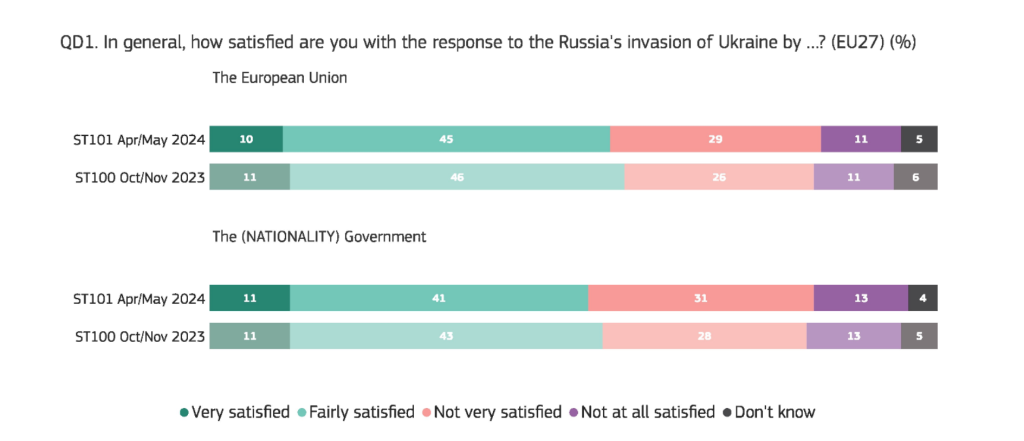
A closer look shows, once again, how the working class and less well-to-do, which have taken the brunt of the pain from the war through inflation, real wage declines, industrial decline, remains more opposed to the war than wealthier respondents:
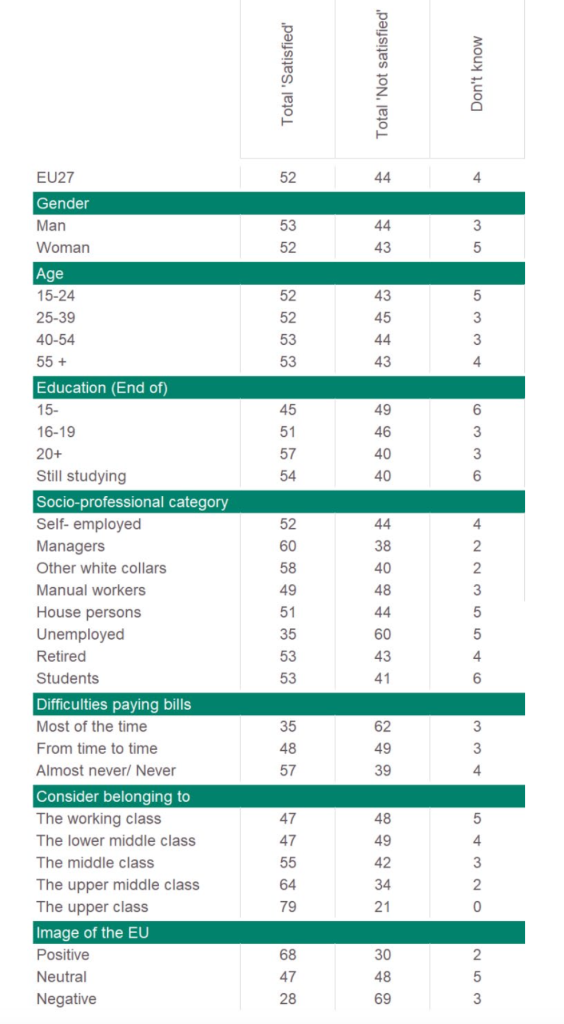
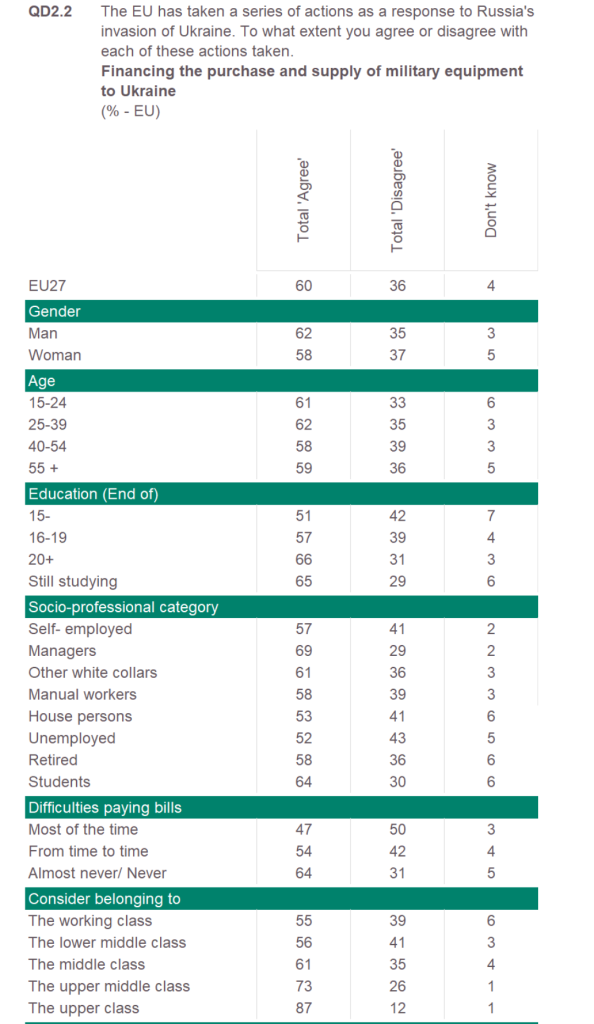
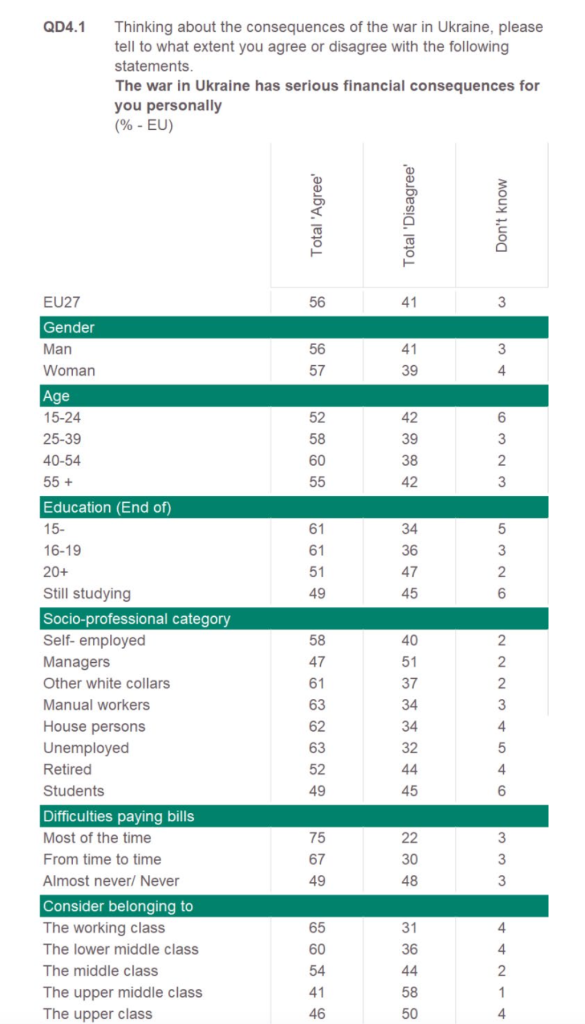
Support is dropping across the board:
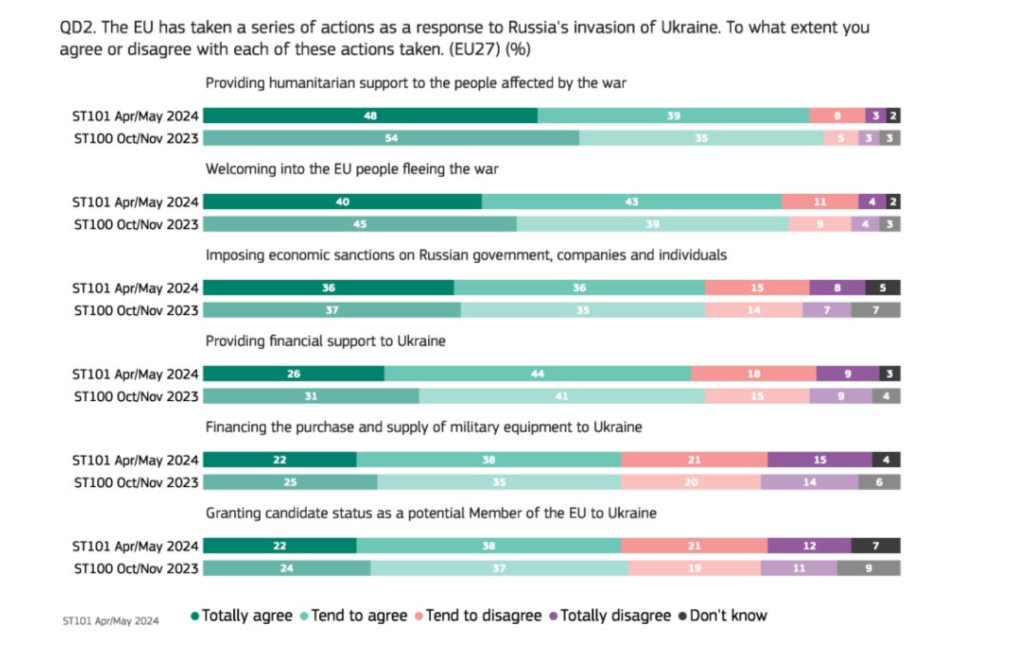
The questions that the Commission is likely paying the most attention to, however:
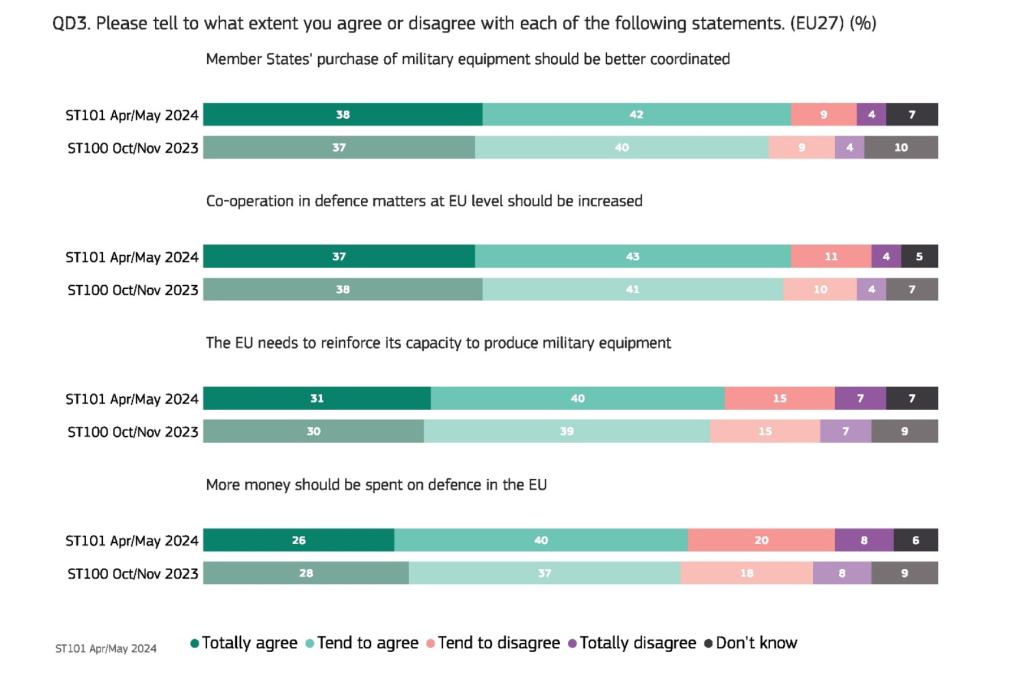
Let’s take a look at polling conducted in December from the European Council on Foreign Relations (ECFR):
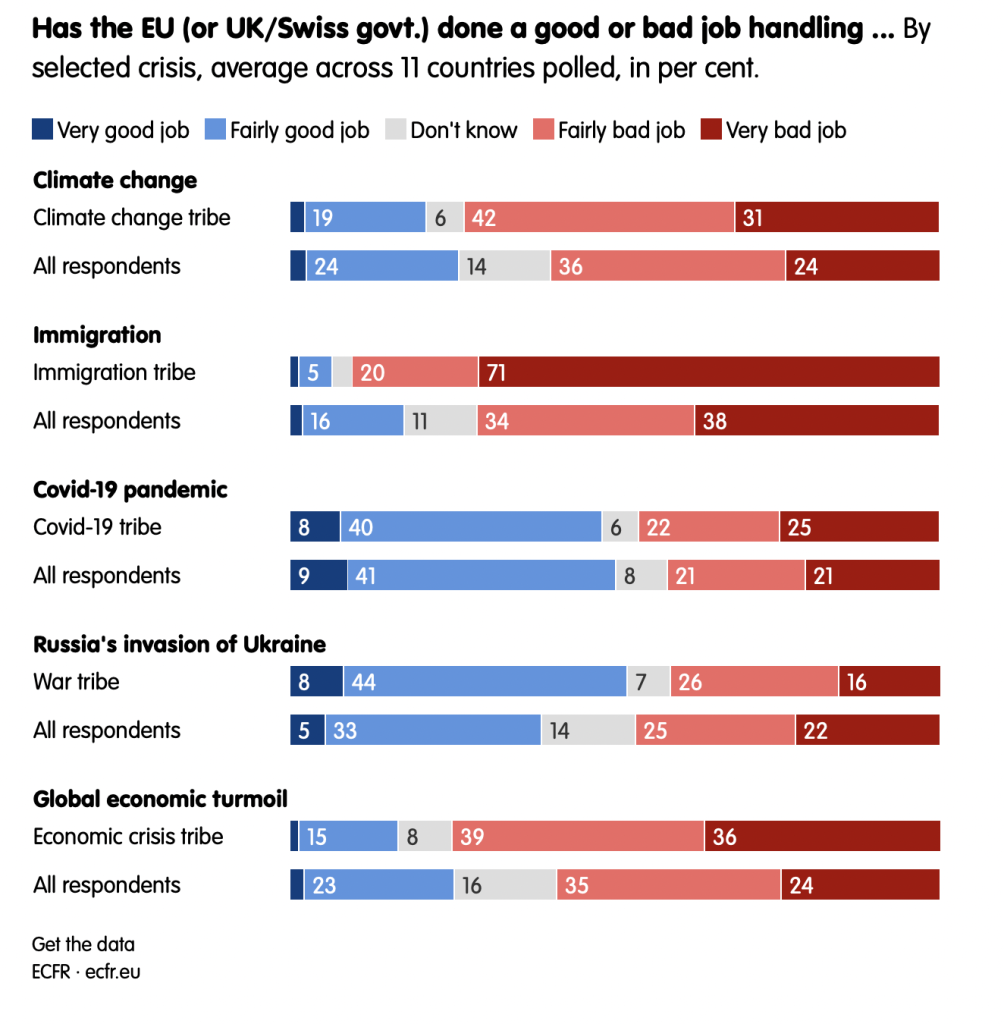
Notably, the ECFR points out the following:
If the war tribe needed a capital, it would probably be Tallinn – as the capital of the country with the largest percentage of people in that tribe, although Poland and Denmark also see the war at the top of their crisis lists (in Denmark it is tied with climate).
Naturally, the likely incoming EU foreign policy chief is Estonian Prime Minister and rabid Russophobe Kaja Kallas. Maybe she’ll be able to remind Europeans of the threat that Moscow is determined to march to the English Channel because fear of Russia is waning. From Euractiv:
Respondents fear climate-change-driven migration more than the security threat posed by Russia, according to a fresh survey for the Munich Security Conference (MSC) published on Monday (12 February).
European voters are also increasingly worried by “migration through war and climate change” and by the threat of radical Islamic terrorism, according to the latest Munich Security Index survey, which canvassed 12,000 people in the G7 countries, as well as Brazil, India, China, and South Africa.
The survey, which focused on 32 perceived risks, found that those threats are now viewed as even more important than a security threat posed by Moscow, which ranks fourth overall this year.
In last year’s survey, Russia’s war on Ukraine had been rated as the biggest threat to global security, particularly in the G7 countries.
While Russia was still the top risk for five G7 countries last year, only UK and Japanese citizens still consider it so this year, according to the survey. German citizens now only see Russia as the seventh greatest concern and Italians see it as the 12th.
Here are more recent May survey results from the European Council on Foreign Relations:
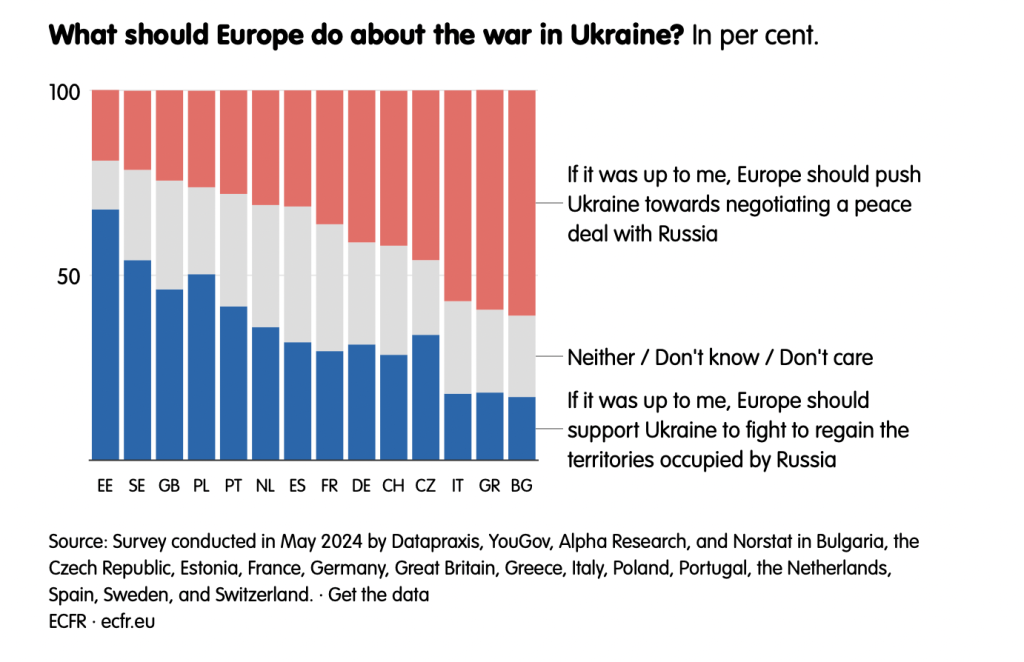
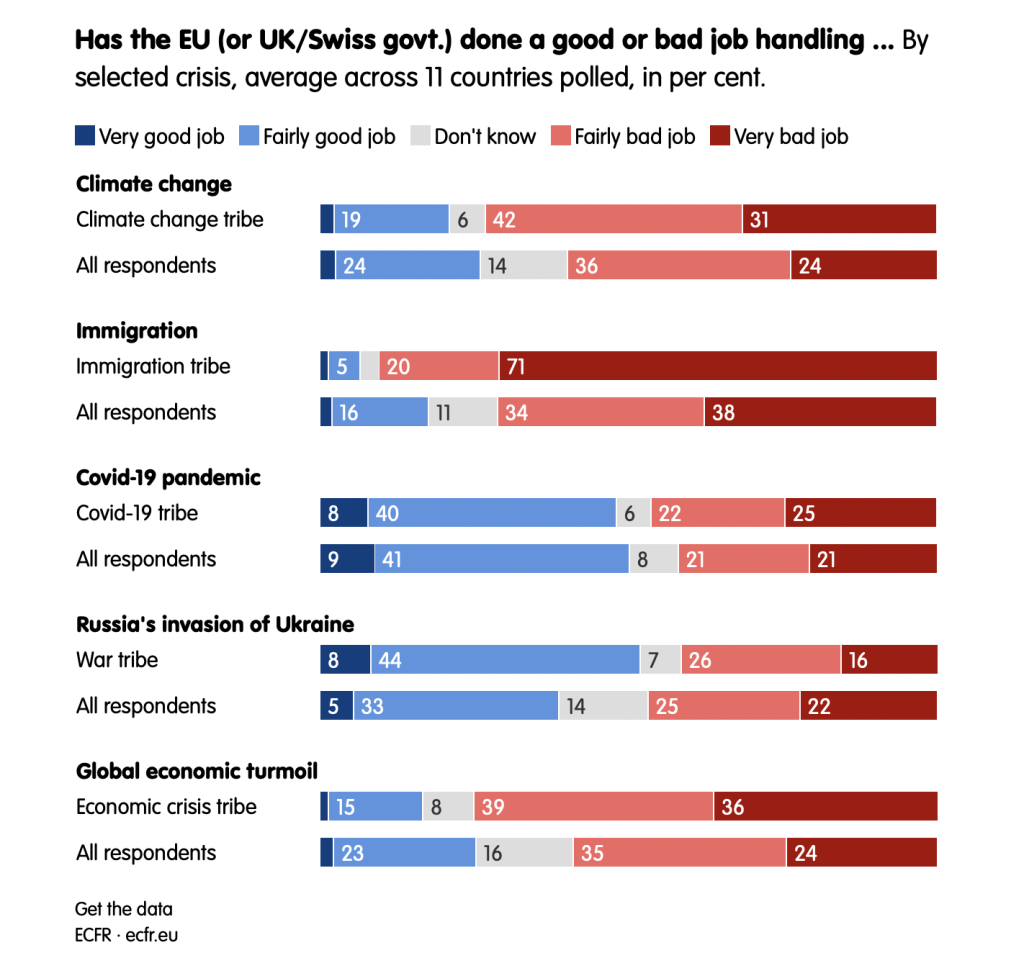
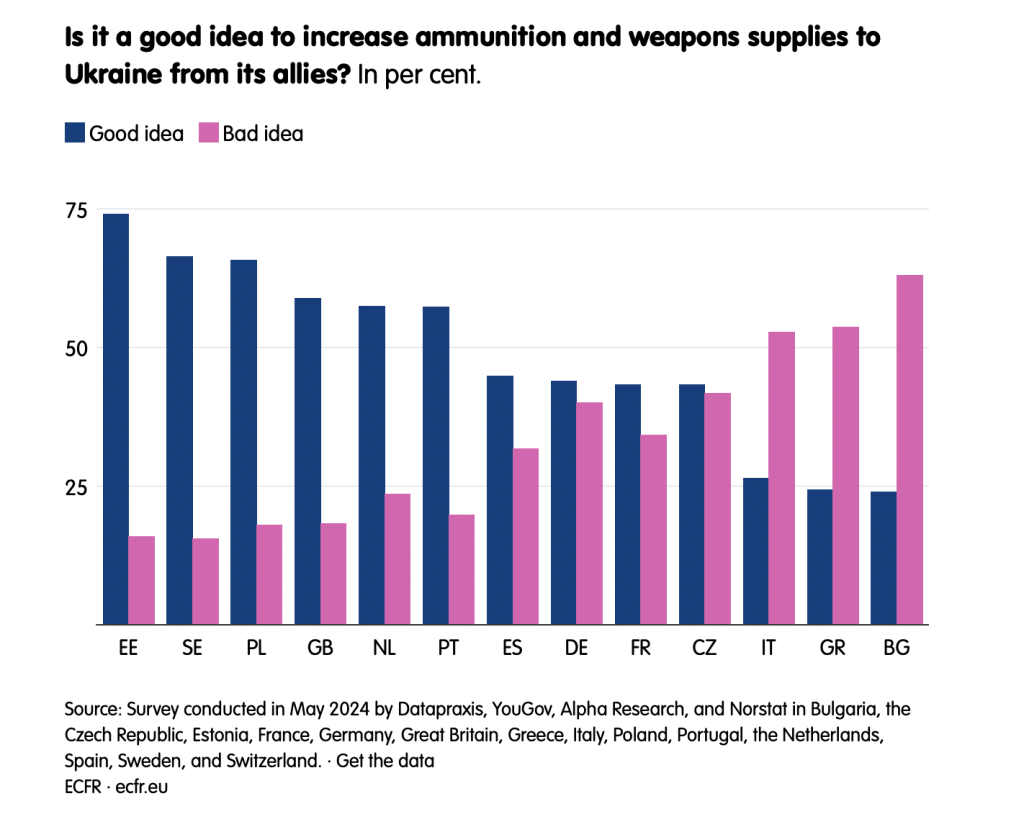
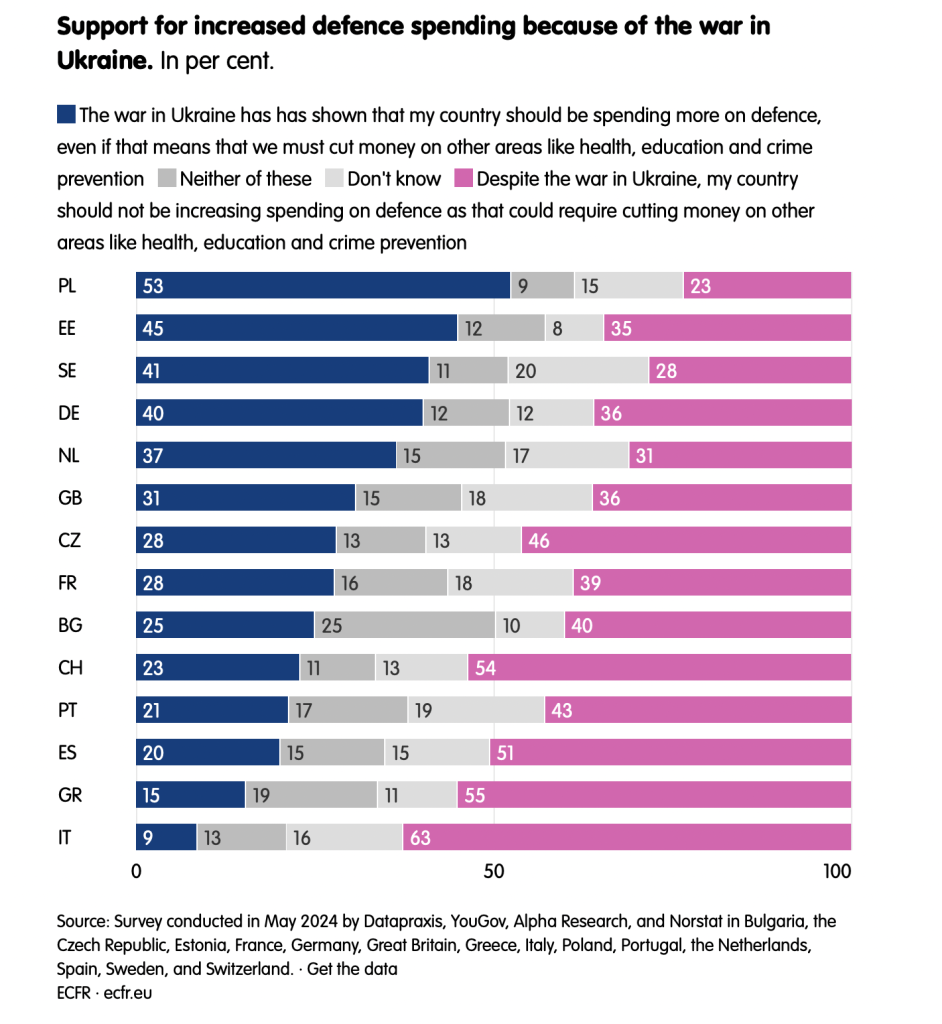
The question that the Commission is likely paying the most attention to, however:
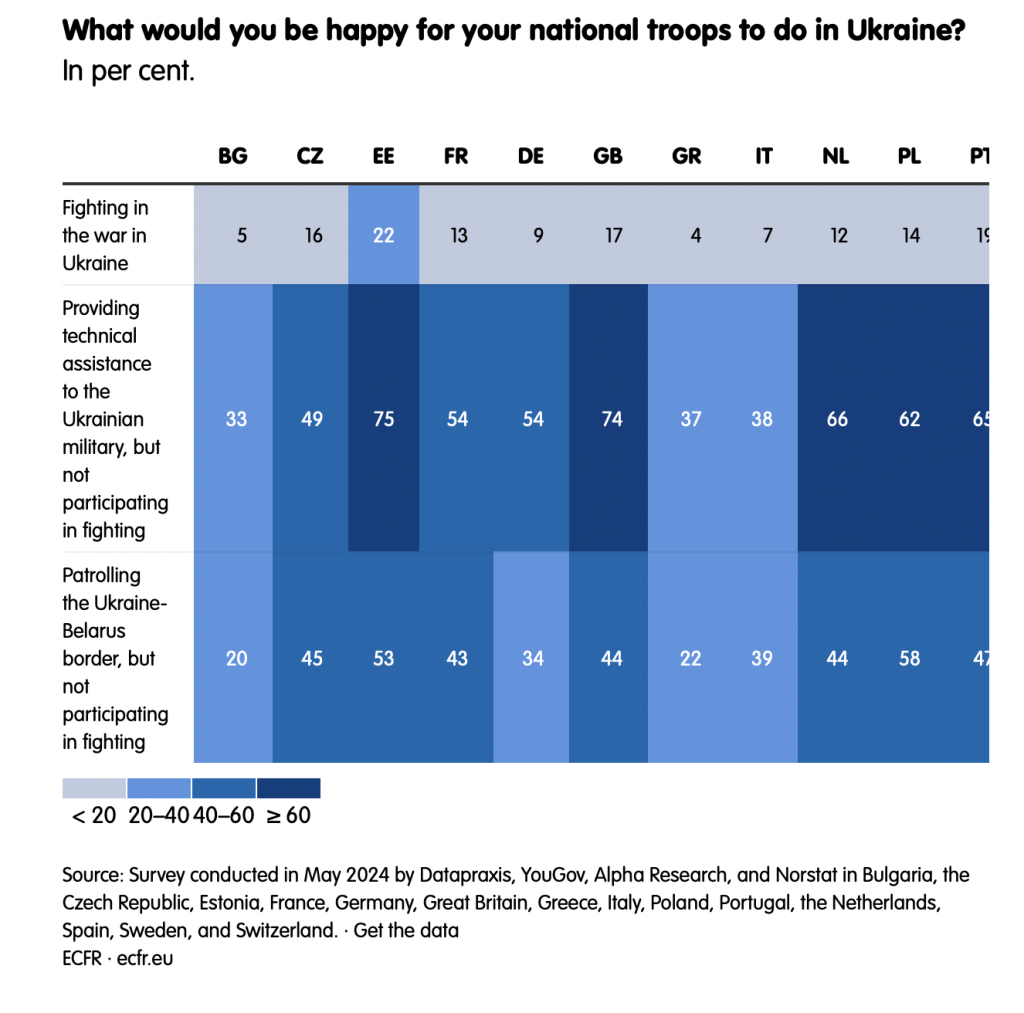
And even more polling that really backs Orbán’s position to seek a negotiated settlement:
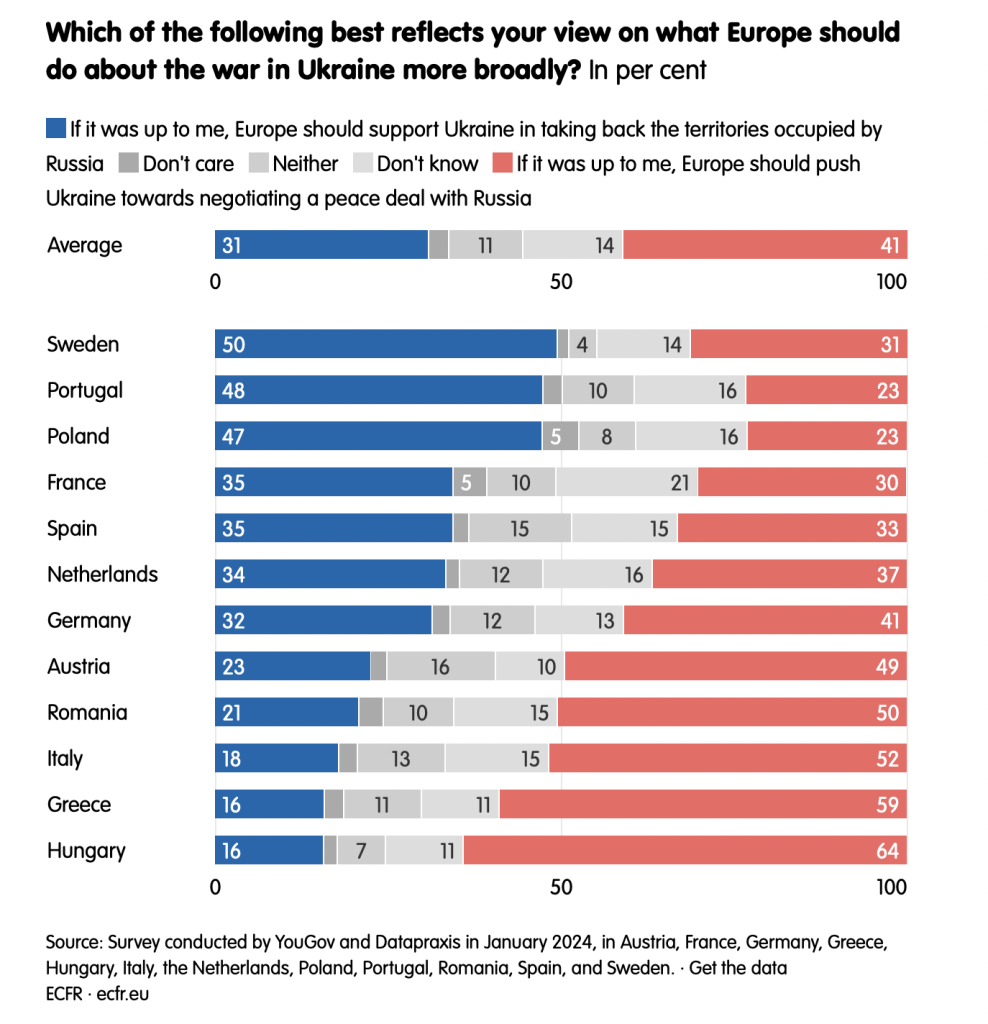
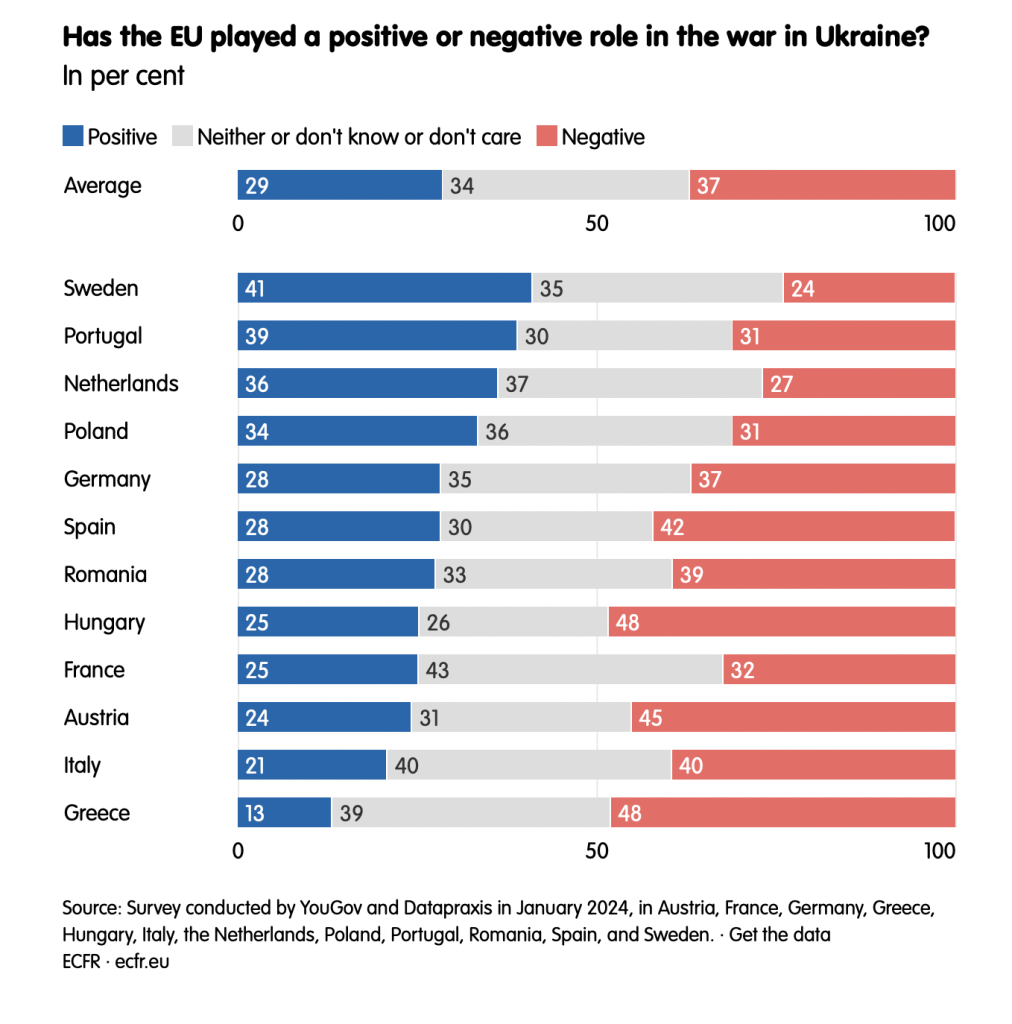
Polling That the European Commission Should Be Paying Attention to but Likely Won’t
Declining trust in institutions:
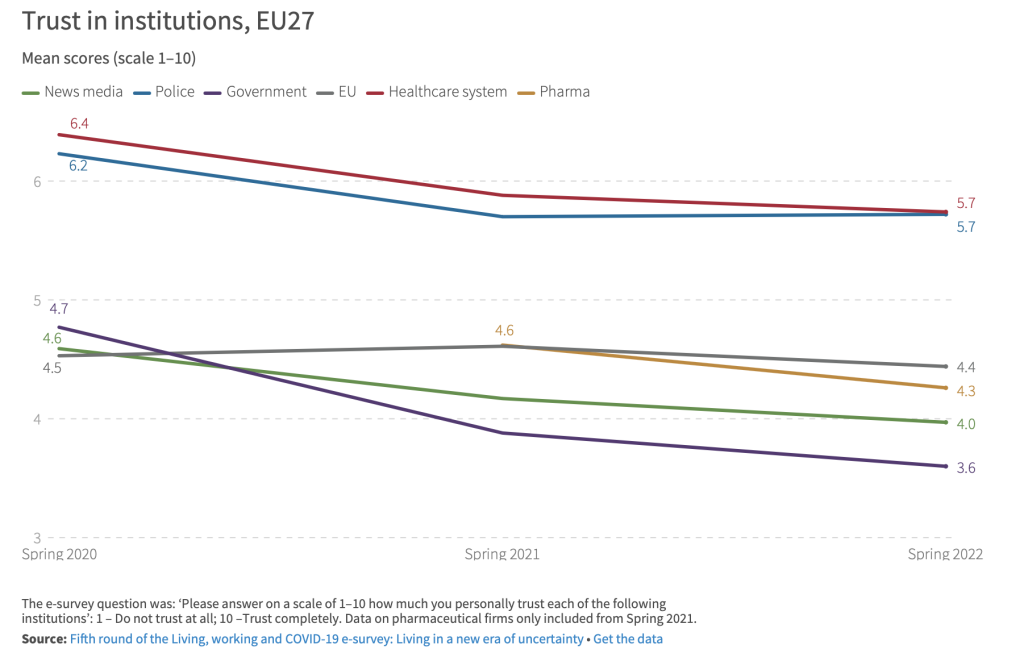
Broken political systems:
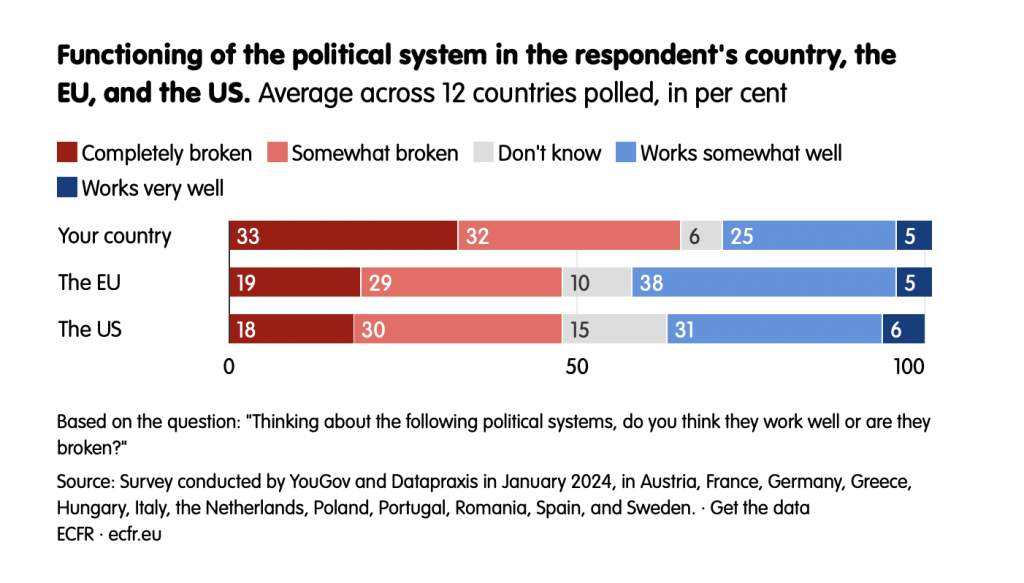
Things going in the wrong direction:
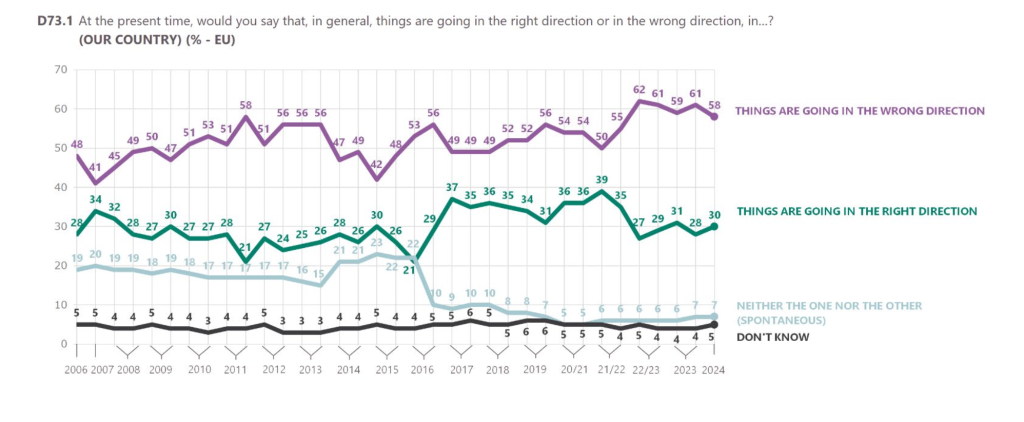
Quality of life getting worse for anyone not wealthy:
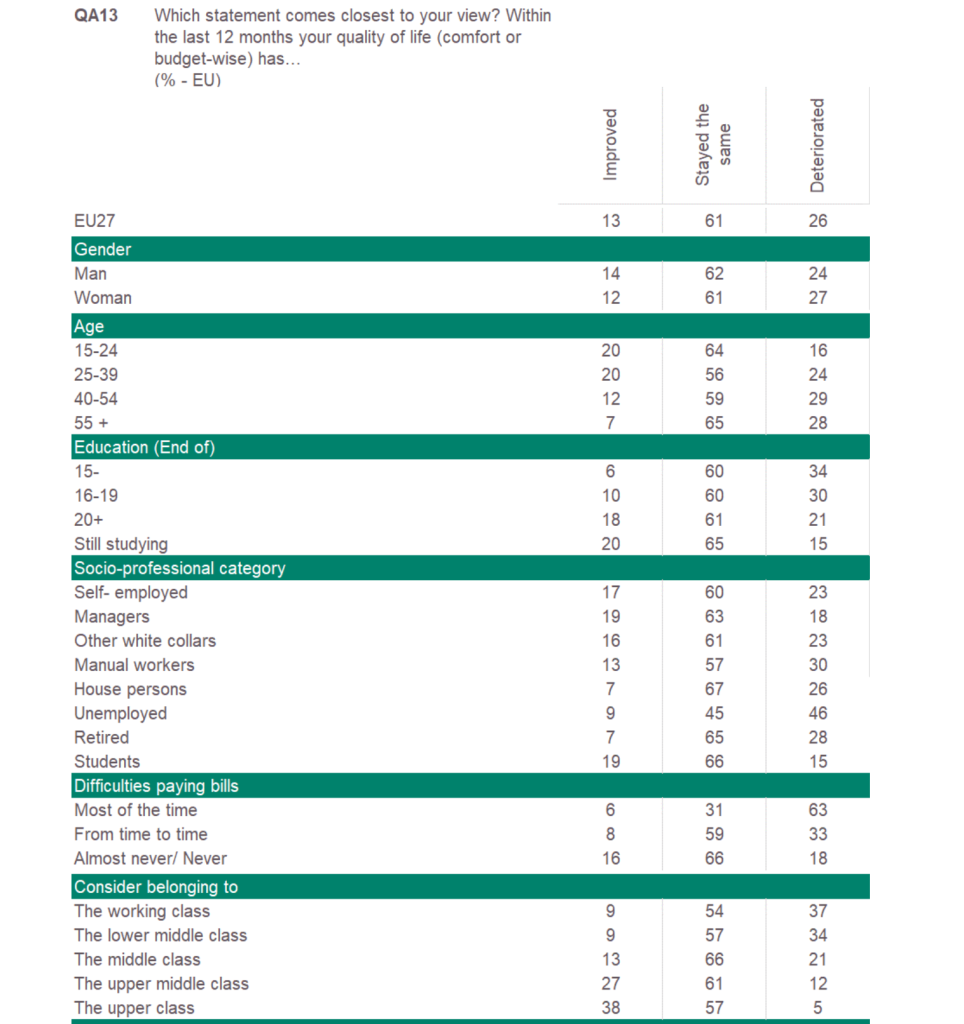
Among respondents who aren’t wealthy polls show widespread dissatisfaction with the economy and very little belief that prospects will improve:
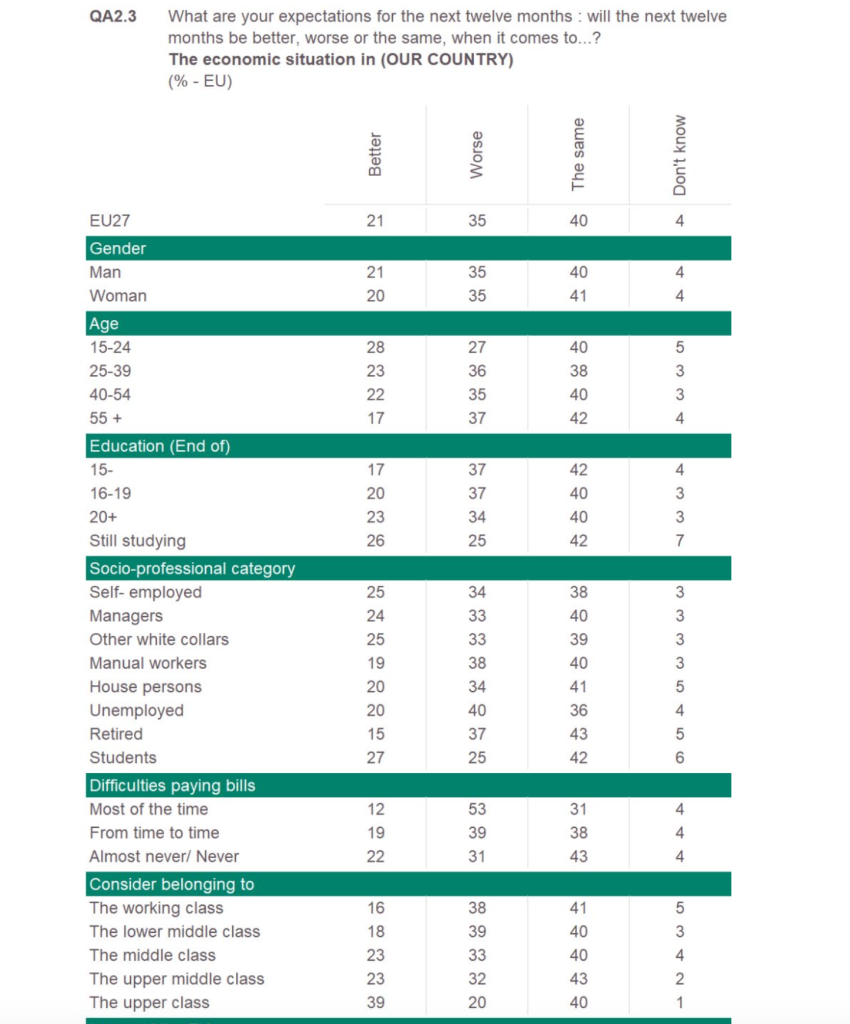
In conclusion, while it’s unlikely that Orbán is going to end the war, he can remind Europeans that dialogue is possible. Maybe it leads people to wonder just what other European leaders are doing not meeting with Putin, Xi, Zelensky and trying to find some pathway to end the conflict. Maybe they start to look at Borrell, Kallas, Baerbock, whoever the French foreign minister is, etc. and wonder what exactly these people do all day other than repeat Washington talking points.


